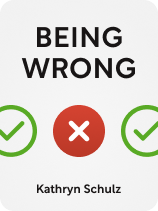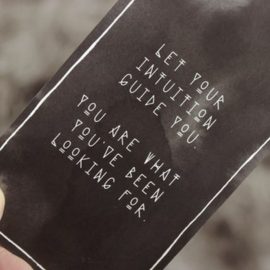

This article is an excerpt from the Shortform book guide to "Being Wrong" by Kathryn Schulz. Shortform has the world's best summaries and analyses of books you should be reading.
Like this article? Sign up for a free trial here.
What’s the role of certainty and doubt in your life? How do these opposing forces shape your beliefs and decisions?
In her book Being Wrong, Kathryn Schulz explores the continuum between certainty and doubt. She argues that we often default to certainty more than we know. She provides helpful insights into the necessity and dangers of our core beliefs.
Read on to understand how certainty and doubt serve us in our daily lives.
Certainty and Doubt
How tightly we cling to any given belief falls somewhere on the spectrum between certainty and doubt. Schulz argues that certainty is the default position for more of our beliefs than we realize, and, while that’s necessary for us to get through the day, it carries inherent dangers that only the discomfort of doubt can assuage.
To be certain about the basic rules of life is more than a comfort, it’s a necessity. Consider how many beliefs we take so much for granted that we don’t even think of them as beliefs. We’re sure that an object will fall if we drop it. We’re sure that the sun will come up in the morning. We’re sure we need food and water to survive. Schulz explains that our whole understanding of the world is built on a framework of beliefs so fundamental that it wouldn’t make sense to doubt any of them. How could you function for a moment if you doubted that gravity works or that you need air to breathe?
(Shortform note: Schulz presents our most basic beliefs as questions of fact, such as air and gravity, but how these beliefs take root may go beyond simple matters of factual accuracy. In Maps of Meaning, Jordan Peterson argues that subjective experience is more important to the mind than objective observation. In other words, in our everyday lives, we don’t think of gravity as a physical law, but in terms of how we experience its effects and how we behave in response. Furthermore, in The Art of Thinking Clearly, Rolf Dobelli asserts that accepting our most basic beliefs is a biological imperative that’s been programmed into us by evolution itself. After all, as Schulz herself makes clear, doubt can be a poor survival strategy.)
Schulz says that certainty gets us into trouble because many core beliefs are tightly wrapped up in our sense of identity—such as the belief that our tribe will protect us and therefore we owe it our allegiance in return. Anything that calls such a belief into question feels like a personal attack. We instinctively double down on being certain instead of giving in to the discomfort of doubt, so if someone suggests that our core beliefs are wrong, we stop listening and deny the other person’s views. We tell them they’re misinformed, or stupid, or worse. When the threat of doubting our core beliefs is existential, we may even decide the other person is evil and out to destroy all that’s good in the world.

———End of Preview———
Like what you just read? Read the rest of the world's best book summary and analysis of Kathryn Schulz's "Being Wrong" at Shortform.
Here's what you'll find in our full Being Wrong summary:
- Why you shouldn’t try to completely avoid making mistakes
- The reasons why you get things wrong
- How to make mistakes without falling victim to shame and denial






